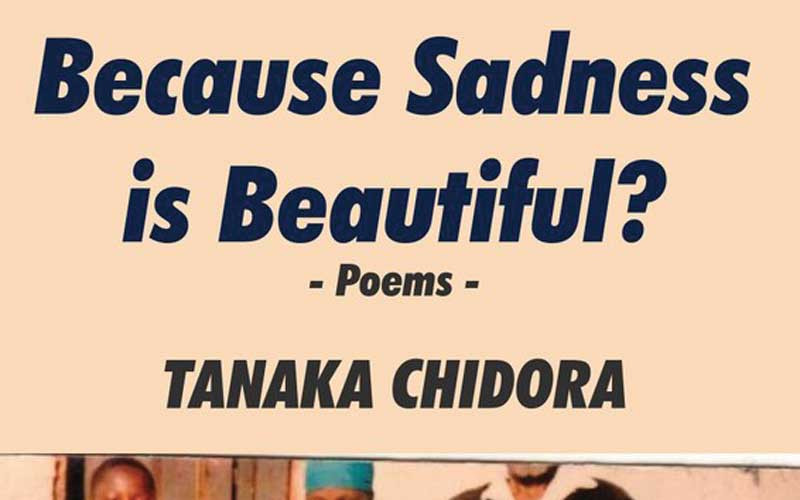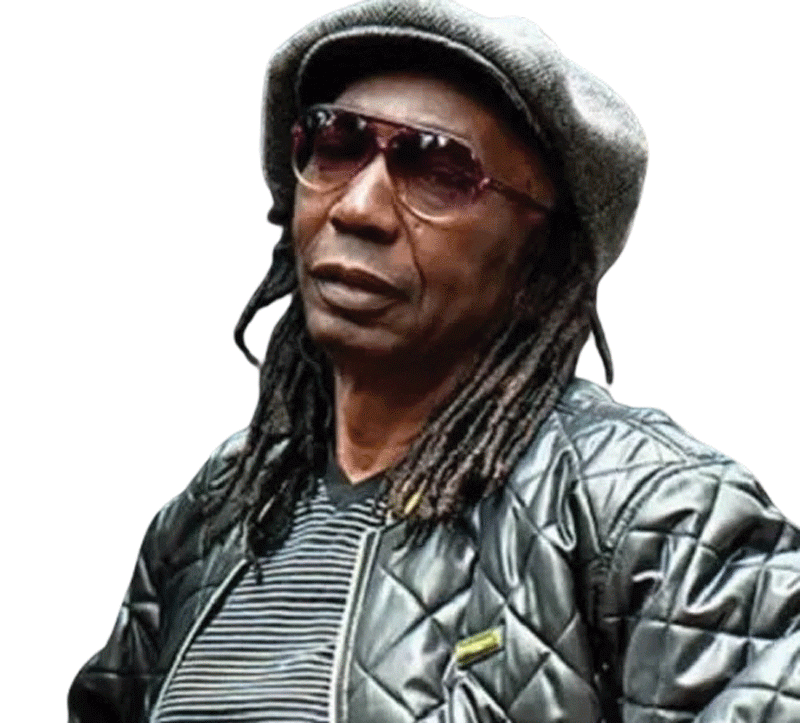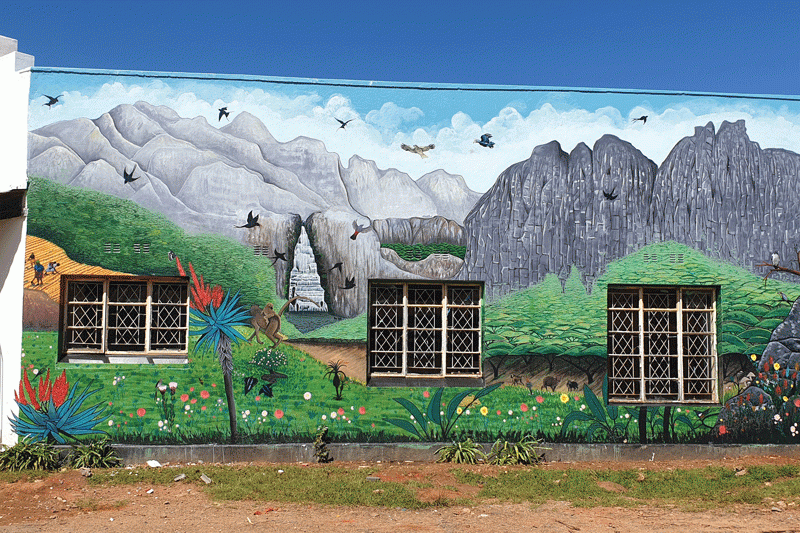
Because Sadness is Beautiful? comprises poems in English by Tanaka Chidora, (with a foreword by Magdalena Pfalzgraf), published by Mwanaka Media and Publishing, Harare, 2019, ISBN: 978-1-77929-596-5
Tanaka Chidora’s first book of poems in English, Because Sadness is Beautiful? dazzles with that question mark at the end of the title. That question mark flips in the reader’s mind like disco lights. I think it is meant to challenge you to look at things inside out. That way, you may experience what the late David Mungoshi calls on the book's blurb “a near out of body experience.”
Beauty, as we know it cannot live side by side with sadness. They are meant to fight like fire and water or light and darkness. I will suggest that sadness, as you find in these poems, is beautiful because the poet has found a way of linking that sadness with concrete historical movements in Zimbabwe and all of Africa.
Put differently, sadness becomes beautiful when you can trace it back to its source. You start to separate man from his shadow, however hard they try to mingle. A terrible beauty is born in these poems, not because a revolution is waged, but because you have been persuaded to look and understand very clearly how you have become and how long the road ahead is.
Many of these poems talk about ‘the old that hides in the folds of the new.’ Growing up, our uncles told us horrifying stories about straying through sacred grounds at night where you run and run and run but always feeling that you were on the same spot! For Chidora the poet, “the ugly underbelly of the new/ reveals itself to a few”.
As a result, Chidora invents phrases and lines that startle through their intense internal opposition, like when he writes about ‘peace armed to the teeth,’ like ‘someone touched the hem of my smile,’ like ‘one day peace decided to have children,’ like ‘the river roaring, spinning and tearing its clothes…’ and ‘open your eyes and see that there is nothing to see.’
In that regard, you may probably like that short poem called ‘Leaving.’ For some people, as shown in this poem, leaving one’s country comes when one stops talking about the terrible situation in their country. It is strange that you may actually leave a country when you give up on it, while you are still in it, that you may not leave it physically. The poet is suggesting that people and country are like the dog and its tail! One can never catch the other during a chase. Also, nobody may effectively leave a country once you are born to it and experience it.
The poem ‘Father’ could be the watershed poem in this collection. Father is a hopeless drunkard but you can see that he is also a protector, sometimes he is a preacher-philosopher and sometimes he is your weak friend whose injured body has to be ferried home by others. You do not need to open your eyes to see father because you see him with your eyes closed, because he is painted by Chidora with care and ease. Chidora’s ‘Father’ is not drawn with the usual stereotypical brush used for parents in literature. Chidora’s ‘Mother’ poem which comes earlier will definitely struggle against the ‘Father’ poem. Chidora's mother poem is a given. But, the father poem is a challenge.
- 'Africa should define its own beauty standards'
- Book Review: Memory Chirere reads Tanaka Chidora's Because Sadness is Beautiful?
Keep Reading
Mbare features prominently in these poems. Mbare is often side-lined in Zimbabwean literature. ‘Magamba Hostels’ portrays the known hostels as a wreckage seen from the sea shores at different times of day, sparking different mixed thoughts. Then there is another longer poem that dedicates a stanza to each of the 13 blocks of that historical hostel. Mbare is described as a cultural melting pot. Mbare is an embarrassment to the politicians who give empty promises. Mbare is a place where small men and women have opportunity to recreate and re-arrange themselves. Mbare is a language by itself. Mbare is a place of waiting, of arrival and departures.
These poems are torn between belonging and disinterest in the country. They search for something to hold on to, something beyond the misery around us. You come away from this book with the idea that; whatever the very crucial things we have experienced in history, they may not be good enough to keep us together for as long as we do not achieve peace, prosperity and harmony. I am also touched by the fact that this is one of the last few books that the late great David Mungoshi edited before his exit.
About author
- Tanaka Chidora is a writer and the author of Because Sadness is Beautiful? (2019), a collection of poems published in Zimbabwe. Additionally, Chidora writes short stories. Some of his short stories have been published in various journals and collections. In 2023, Chidora was long listed for the Island Prize for the manuscript of his debut and forthcoming novel, Carrying a Country on Your Forehead. Recently, he translated Tsitsi Dangarembga's The Book of Not into Shona. The translation was published as Hakuna Zvakadaro (2023). Besides writing, Chidora is a lecturer in the Department of Literary Studies at the University of Malawi. Chidora has also taught at universities in Zimbabwe and Germany.
About the reviewer
- Memory Chirere is a Zimbabwean writer. He enjoys reading and writing short stories and some of his stories are published in No More Plastic Balls (1999), A Roof to Repair (2000), Writing Still (2003) and Creatures Great and Small(2005). He has published short story books; Somewhere in This Country (2006), Tudikidiki (2007) and Toriro and His Goats (2010). Together with Maurice Vambe, he compiled and edited (so far the only full volume on Mungoshi called): Charles Mungoshi: A Critical Reader (2006). His new book is a 2014 collection of poems entitled: Bhuku Risina Basa Nekuti Rakanyorwa Masikati. He is with the University of Zimbabwe (in Harare) where he lectures in literature. Email: [email protected]










